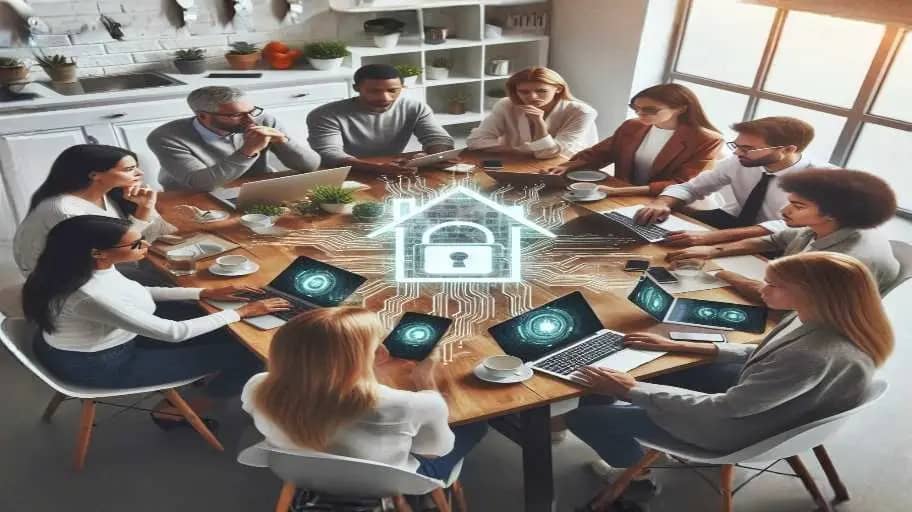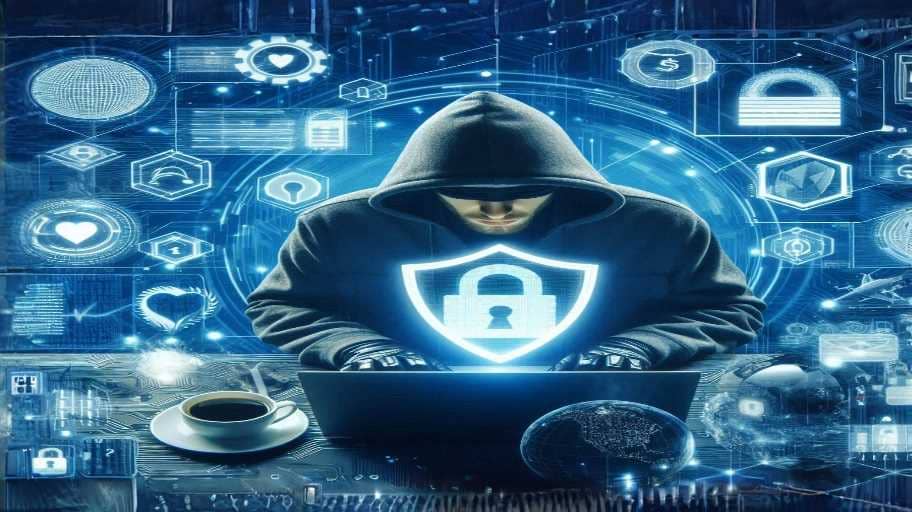In today’s digital world, numerous threats face your home computer that compromise your data and your privacy. With a full swing into Cyber Awareness 2024, it is indispensable to stay ahead of cybercriminals and protect your home computer system from potential attacks. Cyber Awareness 2024 is as much about protecting your home computer as it is important for any novice or highly experienced user.
It’s going to walk us through best practices involving home computer security, securing your operating system, blocking hackers, and preventing phishing attacks. This guide will give you practical tips and the tools you can use to protect your system effectively going into 2024.
What is cyber awareness, and why is it important in 2024?
Cyber awareness involves being cognizant of the risks that the internet and digital devices pose. Cybersecurity threats have become more complex, sophisticated attacks in different ways that invade systems. Protecting your home computer has become not optional but necessary due to cyber threats in 2024.
Cyber Awareness teaches users about common cyberattacks, such as phishing, malware, and hacking attempts, and strategies that mitigate them. The better you know, the better able you are to recognize suspicious activity and take action to secure your system.
How Can You Protect Your Home Computer in 2024?
Knowing how to keep your home computer safe in 2024 begins with simple actions, greatly improving the security of your system. These become a part of your daily routine when computing and form the basis upon which you set your cybersecurity plan.
1. Keep Your Operating System and Software Updated
Perhaps the simplest method of securing a home computer is through its operating system and software updates. Microsoft’s Windows as well as Apple’s macOS regularly publish patches to rectify security flaws in their operating systems. Ignoring these updates only leaves an open vulnerability along with possible targets for your computer.
Ensure automatic updates are enabled, meaning that your operating system installs the latest patches without requiring your intervention. In this way, your computer will continue to be protected without too much effort on your part.
2. Use Strong, Unique Passwords for All Accounts
A password is the first defence mechanism against unauthorized access. Most people have been trapped in this by using weak passwords or employing the same password for multiple accounts. A strong password contains a mix of uppercase and lowercase letters, numbers, and special characters.
Secure your passwords with a password manager that places your credentials in an encrypted vault. Using these tools can create the kind of strong passwords for each of your accounts such that your online presence becomes better protected.
3. Enable Two-Factor Authentication (2FA)
Adding yet another layer of protection, two-factor authentication necessitates that an account’s user undergo two different forms of verification before they gain entry. Even if someone acquires your password, you will not, under most circumstances, allow them to log into your account without the second step of verification.
Turn on all possible 2FA for your email accounts, banking, and social media. This already hugely decreases the probability of unauthorized access to your data.
How to Secure Your Windows 10 and Windows 11 Laptop
The Windows operating system is one of the most used platforms in the market, and its popularity in the user circuit also makes it a primary target for hacking. Be it your Windows 10 or the latest in line, that is, Windows 11; you must secure your laptop. Here are some awareness and crucial steps that will help you protect your Windows-based home computer from cyber attacks in 2024.
1. Activate Windows Defender
It’s Windows Defender, the native antivirus application for Windows 10 and 11, so your system will not fall victim to malware, spyware, or viruses. The company updates it regularly and has it running in the background, scanning for threats. This won’t slow down your computer.
To obtain maximum protection, you should turn on Windows Defender and set up automatic regular scans of it. Coupled with this, you may also want to ensure that you have a well-established third-party antivirus program to back up Windows Defender.
2. Set Up a Firewall
A firewall can be defined as a type of digital boundary between your computer and the internet that monitors incoming and outgoing traffic on a network. Both Windows 10 and 11 boast a built-in firewall that should be enabled at all times.
A firewall, when properly configured, will cut off unauthorized access to your system but still allow trusted connections. It is probably one of the simplest yet most effective ways of protecting your home computer from external threats.
How to Protect Your Computer from Hackers
Hackers’ attacks are among the most serious threats to computer security. These hackers can gain access to your personal information and also financial data and even take full control of your system remotely. Here’s how you could protect your computer from hackers in 2024:
1. Avoid Public Wi-Fi or Use a VPN
Public Wi-Fi networks are notorious for being completely insecure. If you do a lot of work over public Wi-Fi, you’ll want to connect through a VPN and have the encryption encrypt your internet traffic.
A VPN masks a user’s IP address. Even a hacker with one way (a “view”) of your internet traffic has it incredibly difficult to track your activities online, even when you are surfing over an unsecured network. This is a simple step that can save you from becoming a victim of cybercrime.
2. Be Cautious of Phishing Scams
Phishing is often referred to as malicious emails or texts. In phishing, users are tricked into giving secret information. They could use any name, for example, a bank account or technical help to build trust.
Always verify the genuineness of the email that is causing the doubt before clicking on the link or downloading attachments. Data hacking can damage your system severely in no time if you fall into the phishing trap.
How to Protect Your Gaming Laptop from Online Threats
All computers, including gaming laptops, are susceptible to the online dangers of malware hacking, phishing, and more. Generally, gaming laptops store sensitive information like payments and account credentials, making this laptop an attractive target for cybercriminals. Here are the ways to keep your gaming laptop safe from online chat and other threats.
➽ Use Game-Specific Security Settings
Most online games have security controls that protect your identity and personal information during gaming. You can turn on features, such as two-factor authentication, which requires an additional verification step for someone to access your account, and account notifications for alerts whenever there’s a spotted suspicious activity on your game account.
You can also disable some chat functions in the game so that you can reduce your chances of being a victim of social engineering or phishing.
➽ Install Antivirus software with a Gaming Mode
Most antivirus products have a ‘gaming mode’ that supports their silent background runs while you are gaming. They ensure your laptop is secure, so no alert or scan interferes with your games.
Make sure you choose software with this feature, which offers system security with optimized performance for your machine.
How to Secure a Mac from Cybersecurity Threats
Although many believe that Macs can’t be hacked, they do not render their systems completely impenetrable. Follow these steps and get awareness to ensure your safety and protect your Mac against potential cyber threats and your personal information in your home computer in 2024.
1. Enable FileVault for Disk Encryption
This built-in feature will encrypt the entire hard drive and completely render it inaccessible without your password. This is very useful in case your Mac ever gets lost or stolen, as no unauthorized access would be granted to anyone to open its files.
Enable FileVault in your system settings for additional protection.
2. Use Safari’s Built-In Security Features
My default browser is Safari on my Mac. It’s got some awesome security features that will protect your browsing experience, such as blocking pop-ups, stopping cross-site tracking, and flagging sites known to be fraudulent.
Enable just these settings to minimize exposure.
How to Protect Your Computer from Malware
Malware is just simple evil software made to harm or obstruct your system. It may come in viruses, spyware, and ransomware. Protection of your computer from malware is significant for the overall health and security of your system.
1. Be Careful When Downloading Files
Most malware infections happen as a result of downloading files from unknown websites, so the user should always find out whether the website is trusted or not before getting anything downloaded. A user should always refrain from downloading attachments from unsolicited emails.
When the user is careful, there can be a remarkable reduction in the potential chances of infecting their system with malware.
2. Make Use of Malware-Blocking Browser Extensions
Most browsers offer extensions that identify and block a known malware site or prevent downloading suspicious programs. Most extensions work like an added layer of defence, catching threats before they even get into your system.
Install the most appropriate, trusted extension to fit your browsing behaviour to protect your system while online.
How to Defend Your Computer from Ransomware Attacks
The most dangerous type of cyberattack is ransomware. It’s an infection that gets into your system, encrypts your files, and after that, they have ransom over them, so you will pay money to get those files back. Here’s how to protect yourself from this threat.
⥁Backup Your Data Regularly
The best solution to avoiding a ransomware attack is an up-to-date backup of your data. Should the system be infected, then the files will not need to be paid ransom but restored from the backup.
Use an external hard drive or a cloud-based solution to back up your data.
⥁Avoid Suspicious Email Attachments
Ransomware spreads as it attaches itself to email attachments masquerading as legitimate files. Identify the sender’s identity before opening attachments and ensure that the email is not spamming a phishing attack.
Avoiding attachments coming from unknown senders reduces the chances of ransomware infection significantly.
How to Prevent Hackers from Accessing Your System
Hackers make use of several various tactics to access your system; starting with weak passwords to malware. To protect hackers from compromising your system, follow these tips.
☠️ Disable Remote Desktop Access
Remote Desktop Protocol (RDP) allows accessing your computers from another location. It is a primary door for hackers as well. If you don’t need to use RDP, then you disable it in system settings; close this vulnerability.
☠️ Use a Strong Firewall Configuration
A strong firewall configuration prevents your system from being accessed by unauthorized people by monitoring incoming and outgoing traffic. Try to ensure that the firewall on your computer is correctly configured to deny suspicious activity.
By securing your firewall, you help reduce your potential hacking risk.
Conclusion: Protect Your Home Computer in 2024
Securing your home computer, as of 2024, should top the list. Cyber threats are becoming increasingly sophisticated by the day. Awareness 2024 makes a lot out of preventive security measures. From two-factor authentication to avoiding phishing scams, you can rest assured that your home computer will always be safe from hackers and malware.
The steps and cyber awareness you take today will help you protect your home computer and private information and give you peace of mind in an increasingly digital world in 2024.
FAQ’s
You can protect your computer by using strong passwords, enabling two-factor authentication, and using antivirus software.
Make Windows 11 safe and sound by turning on Windows Defender, a good firewall, and regular updates to your system.
Disable the Remote Desktop Protocol and enable the firewall not to allow hackers to invade your computer without permission.
Some of the free best antivirus software include Avast, Bitdefender, and Windows Defender.
Avoid phishing scams by verifying the sender’s identity and avoiding suspicious links and attachments.


